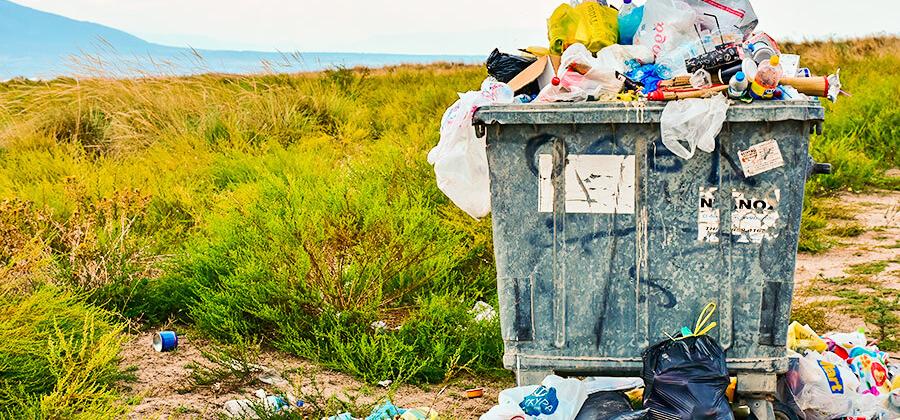
Plastic waste - a serious problem

Plastic waste is a global problem for people and the environment. At S-Polytec, we take the problem very seriously, which is why all our plastic waste is collected by type and reprocessed into recycled panels.
The topic of plastic waste is currently a hot topic in the media. We at S-Polytec think this is justified, because according to the EU Commission, around 26 million tonnes of plastic are produced in the EU every year.
About 70% - that is a whopping 18,000,000 tonnes of plastic waste that ends up in landfills or is incinerated.
The environment and the related responsible handling of plastics is very close to our hearts.
Plastic waste? Not with S-Polytec


Plastic waste, or plastic litter as we call it in technical language, is a big problem and harms the environment in many ways. Burning plastic waste produces toxic emissions that pollute the air we need to breathe. Plastic waste that ends up in landfills can never be completely degraded because plastic is biologically inert, i.e. very stable and soluble.
Unfortunately, plastic waste does not always end up in incineration plants or landfills, but is carelessly disposed of, so that it places a great burden on nature and the environment. Last but not least, a strong accumulation of plastics can be observed worldwide on beaches, sediments and in the world's oceans. The latter in particular, however, is a serious problem.
Our marine inhabitants, such as fish or turtles, mistake the flotsam and jetsam made of plastic waste for prey, among other things, and eat it, which means it also enters our food chain, or they get caught in the plastic waste, so that the animals die miserably.
According to the German Federal Ministry for the Environment, there are currently about 142 million tonnes of plastic waste floating in the world's oceans.


It is good that the EU Commission wants to counteract this. For example, acceptance points for waste at port facilities are to become mandatory, because according to the EU Commission, about 20-40 per cent of the plastic waste in the world's oceans comes from ships.
A sensitive approach to plastic waste is unavoidable. The renunciation of disposable items that cannot be recycled, as well as a structured and consistently implemented waste separation should therefore be an important concern for each of us.
We take environmental protection seriously
As Specialist dealer for plastic sheets and plastic sheet blanks, we already set an example in terms of environmental protection with the blanks service itself, because the possibility of ordering the plastic sheets directly in the size you need means that you do not have any waste that would have to be disposed of.
But even with us, plastic waste is unavoidable, because even though we have developed an almost perfect system in which the offcuts from cutting are used for further cutting, not all plastic sheet remnants are suitable for further use.
We do not dispose of plastics - we recycle them
Plastic waste that we cannot reuse is always collected by us absolutely sorted by type. Our production staff are trained and always made aware of the need to collect offcuts and separate them according to the type of plastic. This also applies to the smallest plastic strip.


We benefit from recycling in three ways
By not generating any waste during the production of our blanks, we protect the environment.
Waste that is not generated does not incur disposal costs.
By collecting the plastic waste according to type, it is possible to grind it to produce new plastic sheets from recycled material, which we sell as so-called Regenerate sheets via our online shop, or have them extruded directly in the desired sizes and thicknesses for our industrial customers.